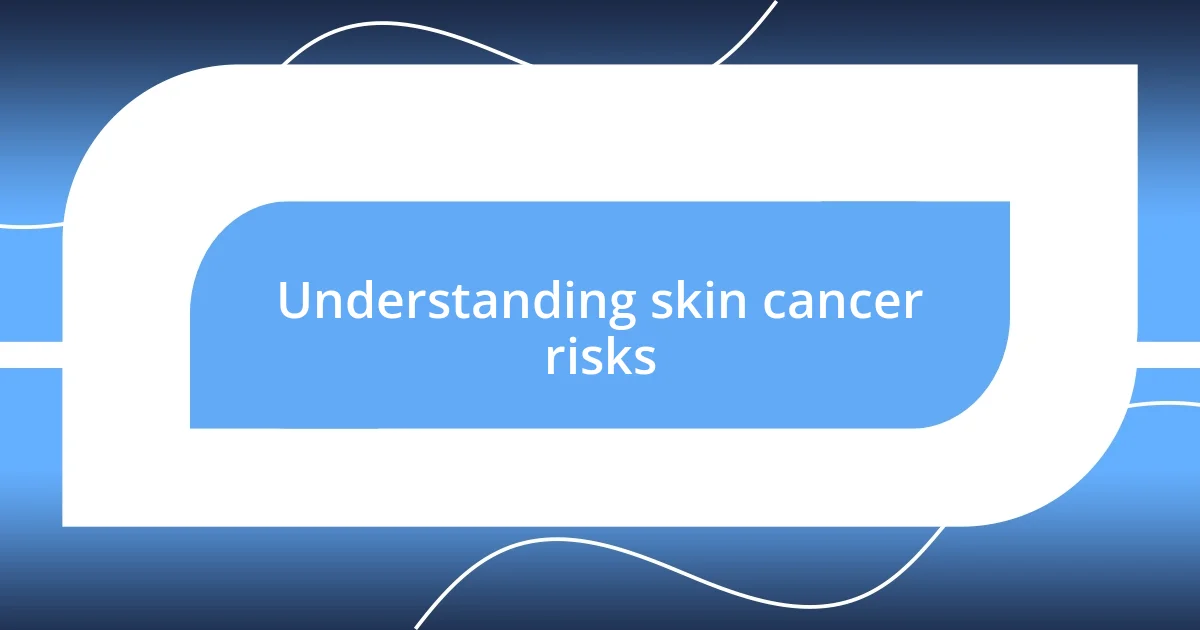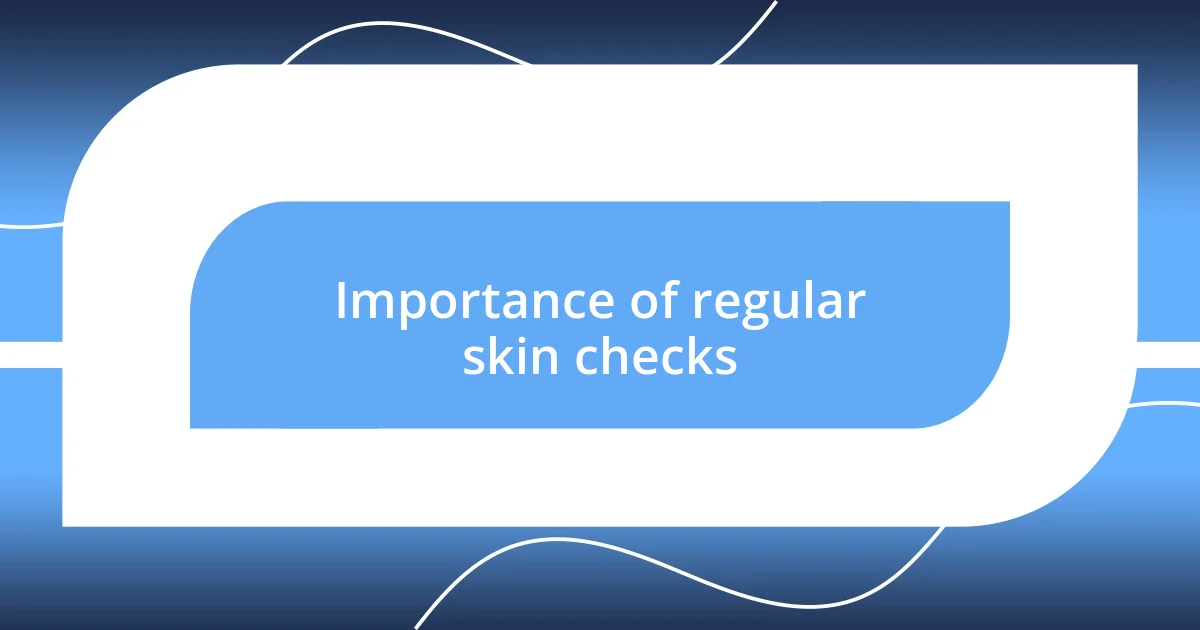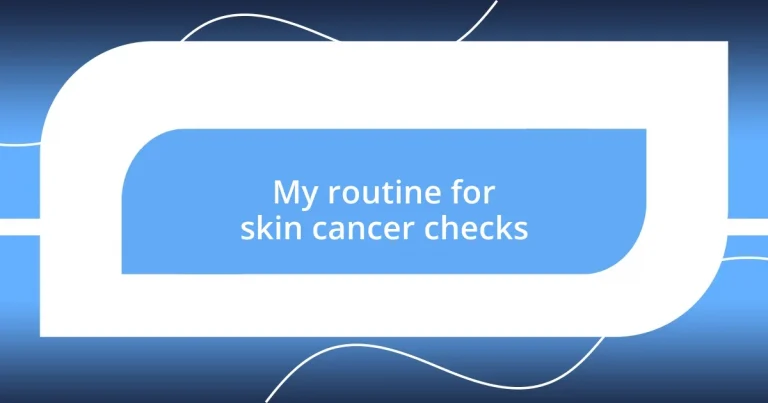Key takeaways:
- Skin cancer risks can be heightened by factors such as sunburn history, tanning bed use, and genetics, emphasizing the importance of awareness and family history in skin health.
- Regular skin checks are essential for early detection, which can significantly improve treatment success rates and provide peace of mind.
- Performing self-exams allows individuals to monitor changes in their skin using the ABCDE rule, fostering a proactive approach to personal health and awareness.

Understanding skin cancer risks
When I first learned about the risks associated with skin cancer, it hit me personally. I remember watching my father, who loved the outdoors, develop a dark spot on his arm that we later found out was a melanoma. This experience made me acutely aware that our skin often reflects the health risks we may overlook.
Skin cancer can affect anyone, but certain factors can elevate your risk. For instance, have you ever considered how your history of sunburns or tanning bed use might play a role? I used to think that a few sunburns in my youth were inconsequential, but now I realize they contribute to cumulative damage that increases my risk later in life.
Additionally, genetics play a significant role in susceptibility to skin cancer. I didn’t fully grasp this until a close friend was diagnosed, despite being vigilant about sunscreen. This made me wonder—how much should we focus on our family history when considering our own skin health? It’s essential to recognize that understanding these risks is a crucial step in prevention and early detection.

Importance of regular skin checks
Regular skin checks are vital for early detection of potential issues, allowing for prompt intervention. I vividly recall my own experience with a slight change in a mole that I initially shrugged off. A friend pushed me to get it checked, and I’m grateful I did because early detection turned what could have been a serious situation into a minor treatment.
Here are some key reasons why regular skin checks matter:
- Early Detection Saves Lives: Catching changes early increases treatment success rates significantly.
- Identifying Risk Factors: Regular checks can highlight personal risk factors based on changes in your skin over time.
- Peace of Mind: Knowing your skin is healthy can relieve any anxiety about potential issues.
- Establishing a Baseline: Regular checks help your dermatologist understand what is ‘normal’ for you, making it easier to spot abnormalities.
Incorporating skin checks into my routine has not only improved my awareness but also empowered me in my personal health journey. Each visit reminds me how proactive care is crucial to maintaining my well-being, and it fosters a sense of responsibility towards my skin’s health.

How to perform a self-exam
To perform a self-exam, start by visually scanning your body in a well-lit area, using a full-length mirror. I often find that standing in front of the mirror with another hand mirror lets me check all angles, including hard-to-see areas, like my back and scalp. Have you ever noticed something unexpected while doing this? I once found a small spot behind my ear that prompted a visit to my dermatologist.
Next, gently feel your skin with your fingertips, searching for any unusual bumps, rough patches, or changes in texture. I remember the moment I felt a small lump that seemed different from any freckles or moles I had. It was a bit nerve-wracking, but my instinct was right, leading me to get it checked out. It’s funny how our bodies can communicate with us in subtle ways—how often do we overlook these signs?
During the self-exam, pay special attention to moles or spots that have changed in color, size, or shape. I always remind myself of the ABCDE rule: Asymmetry, Border, Color, Diameter, and Evolving. This simple guideline keeps me focused on what to watch for. Engaging with my skin in this way has become almost like a ritual for me—an opportunity not just to check for problems, but to connect with my body and take ownership of my health. What can you do to make this routine a treasured part of your self-care?













